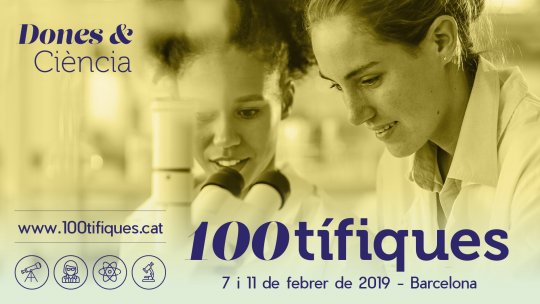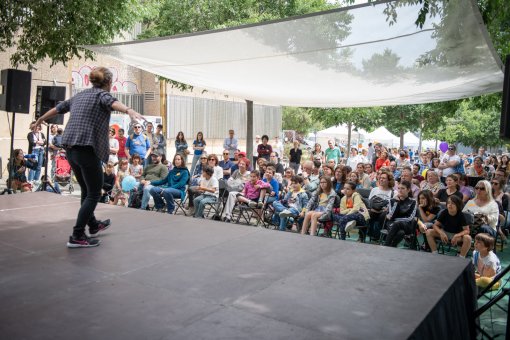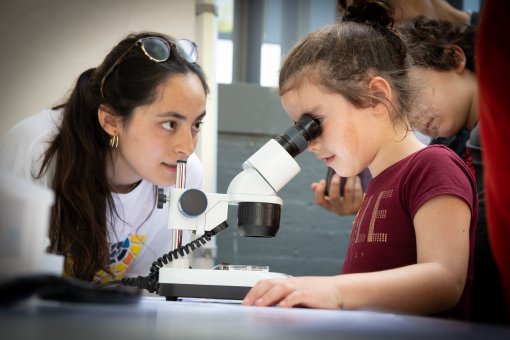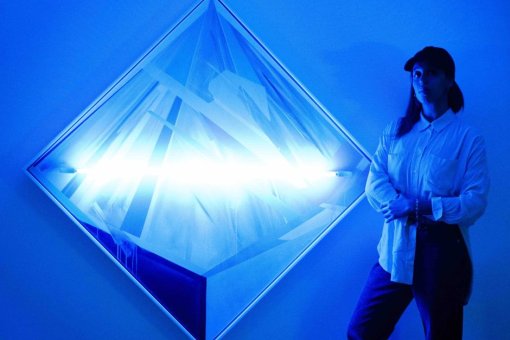Images
Participants
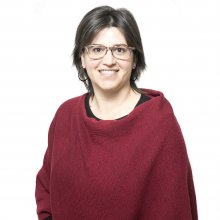
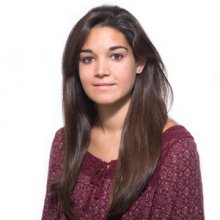
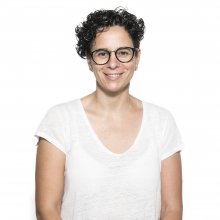

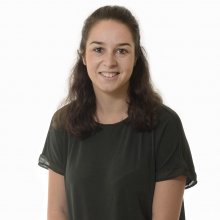

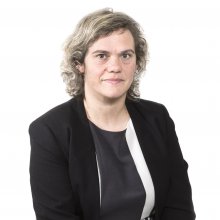
Contact

The Barcelona Institute of Science and Technology (BIST) will be bringing together 100 female researchers and technologists in a training and networking session next Thursday, 7 February, at the Barcelona Science Park. IRB Barcelona will be participating in this event.
The gathering is devoted to the preparation of the talks that the scientists will be giving around Catalonia on the International Day of Women and Girls in Science (11 February) and to ‘fostering a sense of community’ to reinforce the role of women as scientific and social leaders.
The mayor of Barcelona, Ada Colau, will be opening the event, which forms part of the Biennial City and Science Programme.
On Thursday 7 February in the Antoni Caparrós Auditorium at the Barcelona Science Park, the Barcelona Institute of Science and Technology (BIST), which IRB Barcelona belongs to, will be holding a networking and training gathering involving more than 100 female scientists working in research centres and the business sector. This initiative aims to boost visibility of the contribution of women to science and to strengthen their role as references for future generations.
This gathering, which forms part of Barcelona City Council’s Biennial City and Science Programme, will involve the participation of Ada Colau, mayor of Barcelona. Also, Elsa Artadi, advisor to the President of the Government of Catalonia, Mar Camacho, director of Innovation, Research and Digital Culture of the Department of Education, Joan Subirats, from the Commission for Culture of the Barcelona City Council, and Núria Balada, President of the Catalan Women’s Institute will be present.
The short-term objective of the event is to provide women scientists with the skills they need to present their science to schoolchildren in a stimulating and inspiring way in the 100 talks that will be given on 11 February throughout Catalonia. These talks are part of the initiative “100tífiques” (a play on words in Catalan meaning 100 female scientists), which has been promoted by the Catalan Foundation for Research and Innovation (FCRi), with the collaboration of the Department of Education of the Government of Catalonia and BIST, to mark the International Day of Women and Girls in Science, offering to young girls female references in science.
But this gathering also seeks to foster interaction between researchers and technologists and promote the creation of a community among women scientists, one in which to share concerns and that fosters future collaborations. A third objective of the event is to showcase female scientists’ vocation for teaching. One of BIST’s priorities is to actively encourage those with research experience to get involved in science education, allowing them to contribute both rigour and passion to the teaching of science to girls and boys.
Both the specialists participating in the event and many of the attendees underline the importance of girls having access to female references when opting for a scientific degree. "In the BIST researcher training programmes, we are introducing a specific offer to reinforce skills in science teaching because we are convinced that, added to their research experience, it will allow our scientists to make a positive contribution to science education,” explains Núria Bayó, head of Academic Programmes at BIST and coordinator of the BIST-100tífiques Event.
The scientists participating in the meeting on Thursday 7 February are from 13 research entities - the seven BIST centres (48 researchers involved), the Barcelona Supercomputing Center (BSC), the Alba Synchrotron, the Center for Agricultural Research (CRAG), IRTA, the Institute of Energy Research of Catalonia (IREC) and the Open University of Catalonia (UOC) – and from the Eurecat Technology Centre and various companies, such as HP, the Menarini Group and B-Braun, among others.
Participants in the event will be given presentations on several initiatives that bring science closer to schools (such as the Tàndem and Magnet Programmes, in which two BIST centres, namely IRB Barcelona and IBEC, participate, respectively) and the strategies used by the Department of Education to promote STEM disciplines (Science, Technology, Engineering & Mathematics) in schools in Catalonia. Furthermore, two masterclasses will be given, one by coach and consultant Ander Mimenza (Breaking STEM stereotypes in promoting women in science) and the other by Mar Carrió, professor at the Pompeu Fabra University, (How to awaken interest and involvement in science?).
Passion and curiosity to fight stereotypes
Stereotypes continue to influence the selection of degree courses. Consequently, although women account for between 40% and 60% of all PhD holders in the EU-28 countries, they account for only 28% of those who hold PhDs in engineering and 21% in computing, according to data from She Figures 2015, the latest gender report published by the EU's Directorate-General for Research and Innovation. These imbalances in training extend to the workplace, where women account for less than 45% of all scientists and engineers in most European countries and only 33% of all researchers in the EU-28 countries, according to the same report.
Women are also those with the worst working conditions among researchers—they hold more part-time positions, accumulate more precarious contracts and receive lower salaries—and inequality persists in leadership positions (75% men / 25 % women in the Spanish research system, according to the report on Women Scientists in 2015) and in the makeup of the governing bodies of research organisations.
And yet, according to the 2018 Report on equality between women and men in the EU, “reducing gender inequalities in science, technology, engineering and mathematics (STEM) would contribute to an increase of between 2.2% and 3% GDP per capita to the European Union and would create between 850,000 and 1.2 million new jobs by 2050.”
It is therefore urgent to change girls’ perception of scientific careers, breaking with stereotypes from the school itself. BIST has asked the scientists participating in the BIST-100tifiques Gathering what they would say to the girls to encourage them to study STEM careers. The following three key ideas emerged:
Effort and perseverance are needed for a woman to become a scientist, but it is worth it.
- Don’t ever stop asking questions, be curious.
- Don’t let anyone tell you what you can and can’t do.
- You have everything you need. If you want to do something, you can.
About IRB Barcelona
The Institute for Research in Biomedicine (IRB Barcelona) pursues a society free of disease. To this end, it conducts multidisciplinary research of excellence to cure cancer and other diseases linked to ageing. It establishes technology transfer agreements with the pharmaceutical industry and major hospitals to bring research results closer to society, and organises a range of science outreach activities to engage the public in an open dialogue. IRB Barcelona is an international centre that hosts 400 researchers and more than 30 nationalities. Recognised as a Severo Ochoa Centre of Excellence since 2011, IRB Barcelona is a CERCA centre and member of the Barcelona Institute of Science and Technology (BIST).

